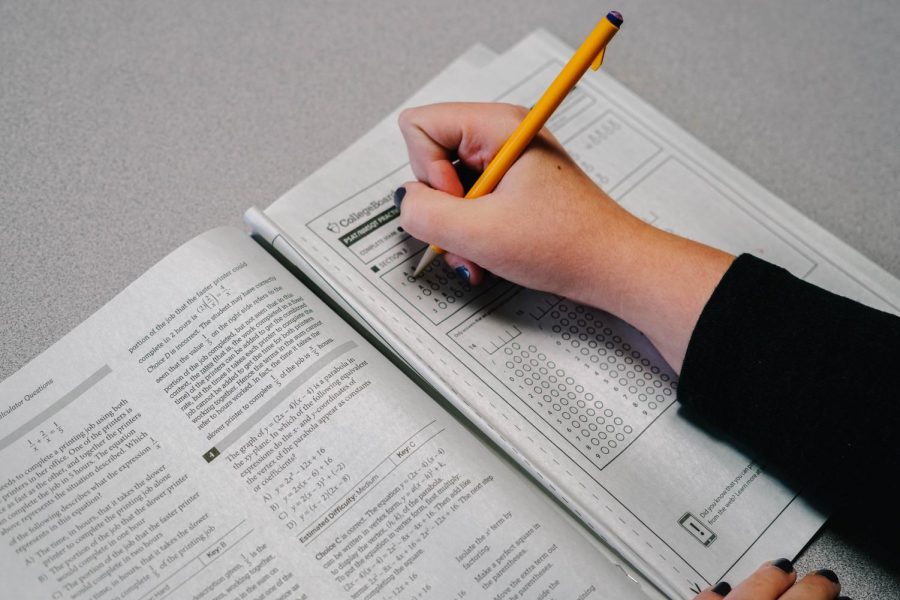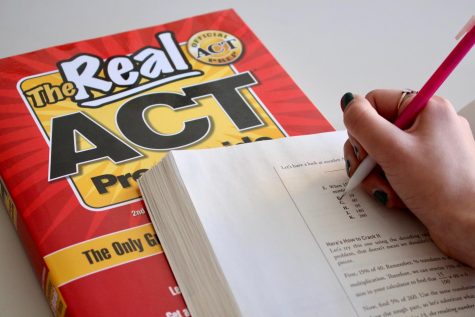Students’ perspectives on the ACT vary
A. C. T. These are three letters that can make any high school junior or senior start to sweat with anxiety or shake with fear. Although it is only a real process for upperclassmen, underclassmen still hear about it and feel some of the pressure for what’s to come.
Throughout high school, students prepare for the ACT test in a variety of ways, including taking practice tests.
The ACT is a determining factor for getting into college. It is a standardized test that consists of four sections; English, math, reading, and science. Each one comes with their own set of difficulties. For some people, the ACT is a race with the clock. For others, the most difficult part is focusing on a grueling three and a half hours.
Freshman year, the ACT is something they have heard about but is so far off in the future that it is barely given a second thought. A lot of freshmen don’t know much about the test. “I heard that the ACT is terrible and that some people would rather give birth than take it,” freshman Samantha Steensland said.
The ACT is a lot of added stress to my junior year. Taking practice tests on top of all of my other school work is a challenge.
— Lauren Hawkinson
Sophomore year, students tend to start getting more pressure from their parents about tutoring and getting ready for the ACT. Sophomore Sadie Witterschein has started hearing more about the ACT. “My parents are always reminding me about it and I am not looking forward to it at all; it sounds difficult,” Witterschein said.
Junior year is the most important year for the ACT and the year where students are put under the most academic pressure. Along with the heavy homework load that comes with junior year, the ACT is just another thing on top of the list of demands. Studying starts to take up a lot of time. To deal with the pressure, many students go to tutors and spend time analyzing the ACT and perfecting their test-taking skills. “The ACT is a lot of added stress to my junior year. Taking practice tests on top of all of my other school work is a challenge,” junior Lauren Hawkinson said.
Some seniors go into the test with a one-and-done mindset. Others have taken five or six ACTs and still plan on taking more. Senior year ACTs sometimes consist of scrambling to get the score or super score up by one more point. Most seniors are at the point where they can watch the juniors start to stress about it, while they are almost to the finish line.
Reflecting back on the ACT, senior Josh Mahoney questions whether or not it is an accurate representation of intelligence. “The ACT is just one test and people have different levels of test-taking skills. Grade point average is a much better way to determine intelligence and work-ethic,” Mahoney said.
Senior Kelly Dempsey has some regrets now that she is finished with the ACT process. “I wish I would have studied more and put in more effort because I honestly didn’t care that much when I was taking it,” Dempsey said.





















































